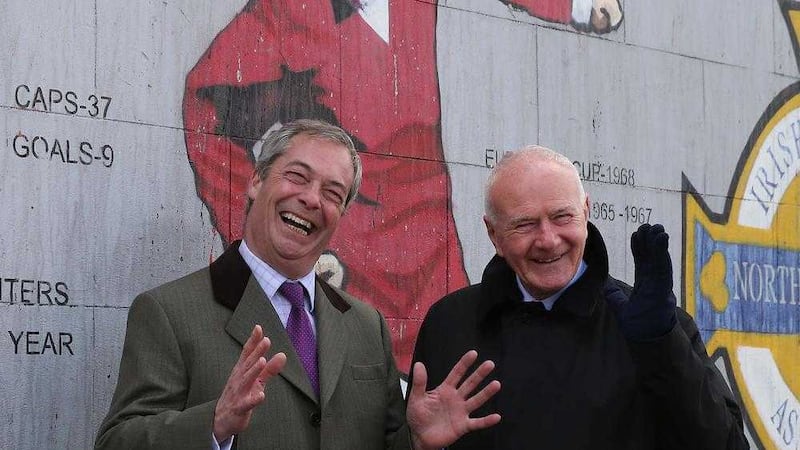Keir Starmer is running around like a scalded cat: Berlin, Paris, Dublin and now Washington. We all know what he’s doing.
He calls it ‘resetting’ Britain’s relations with the EU and the US. He carries a metaphorical brush and shovel with him to clear up the mess the Johnson-Truss-Sunak train crash government left behind.
It’s more than just a reset, however. Primarily Starmer is desperately anxious to find ways to restore Britain’s export trade, especially with the EU where it has plummeted because of Johnson’s Brexit.
That was the main emphasis in his invitation to Simon Harris to Chequers in July and in his visit to Dublin at the weekend.
Trade between Britain and the Republic is worth £90 billion, a lot of it consisting of massive imports of beef, pork, lamb and dairy produce from Ireland. The British have delayed imposing import regulations on Irish goods, first because the regulations and customs sheds weren’t ready, but secondly because of the price increases that would follow.
On the other hand, following EU instructions, the Republic had customs, tariffs and regulations in place for January 2021 which immediately hit British exports.
Starmer and his proconsul here keep repeating, as both did at the weekend, that they want a sanitary and phyto-sanitary agreement to ease trade restrictions.

Indeed at the British-Irish Association bash in Oxford on Saturday, the proconsul went out of his way to emphasise this point: “We will implement the Windsor Framework with pragmatic good faith, not least because we need to do so in order to negotiate a veterinary agreement with the European Union, but also in order to protect the open border on the island of Ireland.”
He also binned the ‘Safeguarding the Union’ con job sold to the DUP which set out absurdly stupid, extreme Brexit ideological plans to damage trade on this island.
He said: “When it comes to the all-island economy, and I know this is up for some debate, my feelings are very simple, it is a fact it is a success. And I don’t quite understand why there should be an argument about somehow denying its existence when so many businesses and livelihoods are sustained by it: the all-island dairy industry, big multinationals, like Lidl, McDonalds, Coca-Cola and so many small and medium-sized businesses which operate on an all-island basis.”

All very well. However, as Micheál Martin warned at the weekend, Starmer can’t go cherry-picking, which is in reality what he’s up to by visiting EU capitals and talking about trade relations just as Theresa May tried to do.
He will have to talk to Brussels and will have to make concessions if he wants a veterinary agreement, which will require accepting many EU rules and regulations, much as Switzerland does.
Now, it’s no secret that the British would like the Irish to put in a good word for them in Brussels, especially by pointing out the unique circumstances of the British border on the island, how the Windsor Framework (really the Protocol with bells on) has eased trade movement, and how Brussels can trust this British government to act in good faith, as the proconsul said.
What is Dublin going to ask for in return? More good faith on the dreadful Legacy Act and the so-called independent commission the Conservatives set up?

What about asking for the criteria for calling a referendum on reunification to fulfil the full potential of the Good Friday Agreement? After all, it’s a constitutional imperative (Art 3.1).
You might notice that in his speech our proconsul also went out of his way to say this British government are “strong supporters of the union”. Why do British politicians feel it necessary to make such a comment, especially when they have no vote on the matter? (See Annex 2 of the Good Friday Agreement).
It’s even rather impertinent when no-one here voted for him or indeed his party, which doesn’t organise here and has no mandate here. He’s in a classic proconsular role representing the British government in the north, no-one else.
On the other hand, while British politicians never miss an opportunity to assert their claim to this part of Ireland, Irish political leaders never take an opportunity to reiterate the constitutional imperative in Bunreacht na hÉireann, Leo Varadkar excepted.
As a result, the Irish government is unique in the world for having an objective in its constitution but no plan to achieve it. Worse than that, they have taken a vow of silence so they won’t even try to advance the cause by asking the British how they intend to fulfil their obligations on the matter.
Do they not realise the British would love to be rid of the place?




